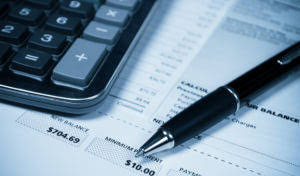Content

In the remaining states, insurance may be
underwritten by a nonadmitted, excess/surplus lines carrier that is not
licensed in that state. The Property Manager shall treat all Tenants honestly and professionally when they are applying for, living in, https://www.bookstime.com/accounting-and-finance and/or vacating a managed residence, including through the deposit refund process. Wishup designates a dedicated account manager to support you during the hiring process, ensuring you have ongoing support for query resolution or process management.

Additionally, they are essential in creating budgets, ensuring efficient resource allocation, and assessing financial performance in relation to goals. If you have had any experience in property management, you have probably encountered many stressful situations. But keeping track of your properties doesn’t have to be complicated. There are only two ways to track money flowing in and out of business, whether you manage personal or investment properties. So, let’s first begin with what is bookkeeping for property management.
The basics of accounting for property managers
Rental property management involves receiving rent payments, handling vendor invoices, and more. A critical step of any good, clean property management accounting strategy is setting up a chart of accounts. A chart of accounts is a clear and detailed list of all assets, liabilities, equity, revenues, and expenses that a property owner tracks. A good chart will allow you to keep your transactions organized and have all relevant accounting information available to you in one place.
Keeping your business account separate from your clients ensures that all of your financial statements accurately reflect what your income and liabilities are versus theirs. As a property manager, you’ve got a lot on the go, especially when it comes to your money. Then there are all of those repairs, maintenance work, and more that take up line after line in your increasingly busy books. Without an organized system, it’s easy to get overwhelmed, struggle to make or receive payments on time, or worse, lose tabs on your money altogether. But wherever you are in your property management business’ growth, here are a few accounting best practices you should always put into practice.
Save time & make more money with DoorLoop
Join our blog newsletter to stay up to date on property management industry insights. Keeping accurate, up-to-date books affords you the opportunity to look over all of your finances at once to find opportunities to save money. There are times when it makes sense to waive fees, especially during the pandemic, when residents or owners are struggling.
There are many accounting software options available for property managers, such as DoorLoop’s property management software. Under this accounting method, income and expense transactions are entered into the books as soon as the money changes hands. Using the example above, property managers would enter in the entire $10,000 into the books. property management accounting best practices The next step property managers should take when setting up their accounting system is determining which accounting method to use. There are two primary methods to choose from—accrual accounting and cash basis accounting. Any property income, such as a rent payment, generated by the property will go into that separate checking account.
